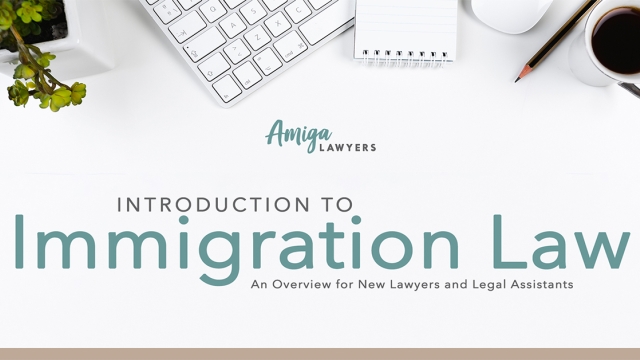
Are you ready to take your shopping experience to the next level? Look no further than TikTok shopping! In this ultimate guide, we will dive into the exciting world of TikTok shopping and show you how to unleash your inner shopaholic. SampleTok, the newest trend in online shopping, is here to revolutionize the way you discover and test products. Say goodbye to boring shopping routines and hello to the joy of claiming free samples each week.
With SampleTok, you not only get to enjoy the thrill of trying out new products for free, but you also have the power to shape the future of these items through your valuable reviews. Imagine being a part of the product development journey and influencing the brands you love. Best of all, there are no shipping fees, no payments required, and no strings attached. It’s a win-win situation where you get to explore exciting new products without any financial burden.
So, get ready to embark on a shopping adventure like no other. In the upcoming sections of this article, we will provide you with step-by-step instructions on how to make the most of TikTok shopping and SampleTok. From finding the best deals to joining exclusive communities, we’ve got you covered. Let’s dive in, shall we?
How SampleTok Works
SampleTok is an innovative platform that combines the exciting world of TikTok shopping with the added perks of free product testing. With SampleTok, you have the opportunity to claim a wide range of free samples every week, all while actively participating in product development through your valuable reviews. The best part? There are no shipping fees, no payments required, and definitely no strings attached!
When you join SampleTok, you gain access to a vast collection of products from various brands. From beauty and skincare to home goods and gadgets, there’s something for everyone. Each week, a new set of free samples becomes available for you to claim. Simply browse through the options and select the ones that catch your eye.
Once you’ve chosen your desired samples, all you need to do is wait for them to arrive at your doorstep. SampleTok takes care of all the shipping logistics, ensuring a hassle-free experience for you. You won’t have to spend a single penny on shipping fees, making the whole process even more enjoyable.
Once you’ve received your samples, it’s time to put them to the test. Try out the products and form your opinions based on your personal experience. Then, head back to the SampleTok platform and share your honest reviews. Your feedback plays a crucial role in shaping the development and improvement of these products.
By participating actively in the SampleTok community, you not only get to enjoy the perks of trying out free samples, but you also have the opportunity to contribute to the creation of products that truly meet consumers’ needs and preferences. With SampleTok, the power is in your hands to unleash your inner shopaholic while making a difference in the world of product development.
The Benefits of SampleTok
-
Discover New Products: With SampleTok, you can explore a wide range of products that you might not have come across otherwise. From beauty and skincare to fashion and home decor, SampleTok offers a diverse selection of free samples for you to try out. This gives you the opportunity to discover new brands and products that align with your interests and preferences.
-
Free Product Testing: One of the major benefits of SampleTok is the chance to engage in free product testing. By claiming samples each week, you can receive these products without having to pay any fees or shipping costs. This not only allows you to try out different items without any financial burden but also gives you the opportunity to give valuable feedback to brands and contribute to product development.
-
Influential Reviews: Your reviews on SampleTok hold significant influence in the world of TikTok shopping. Brands rely on the feedback they receive from users like you to improve their products and make informed decisions. By sharing your honest opinions and experiences, you can have a direct impact on the development and improvement of future products, making your voice truly matter.
Remember, SampleTok merges the fun of TikTok shopping with the benefits of free product testing. So claim your samples, provide your reviews, and enjoy the perks of being part of this exciting community. No shipping fees, no payments, and no strings attached – just pure satisfaction and the opportunity to unleash your inner shopaholic!
Getting Started with SampleTok
Are you ready to embark on a thrilling shopping adventure with SampleTok? Get ready to experience the best of TikTok shopping combined with the exciting world of free product testing. With SampleTok, you have the opportunity to claim a wide range of free samples each week and make your mark on product development through your valuable reviews. And the best part? Absolutely no shipping fees, payments, or strings attached!
To begin your SampleTok journey, all you need is a TikTok account and a passion for discovering new products. First, make sure you have the TikTok app installed on your device. If you haven’t joined the TikTok community yet, now is the perfect time to do so. Simply download the app from your preferred app store and create an account to get started.
Once you’re on TikTok, search for SampleTok by using the search bar. Follow their official account to stay up to date with the latest sample offerings and product testing opportunities. SampleTok regularly updates their page with exciting new samples for you to claim and try out.
To claim a sample, simply follow the instructions provided by SampleTok in their videos or captions. They will guide you on how to claim your desired sample. Remember, the samples are completely free, and you won’t need to worry about any hidden fees.
After receiving your sample, it’s time to put it to the test! Try out the product and take note of your experience. SampleTok values your honest feedback, so make sure to share your thoughts and opinions in a review. Your reviews will not only help the SampleTok community but also contribute to the overall product development process. Your voice matters!
So, unleash your inner shopaholic and dive into the world of SampleTok. Discover amazing products, claim free samples, and be a part of shaping the future of product development – all while having a blast on TikTok. Get started today and let the shopping adventure begin!
















